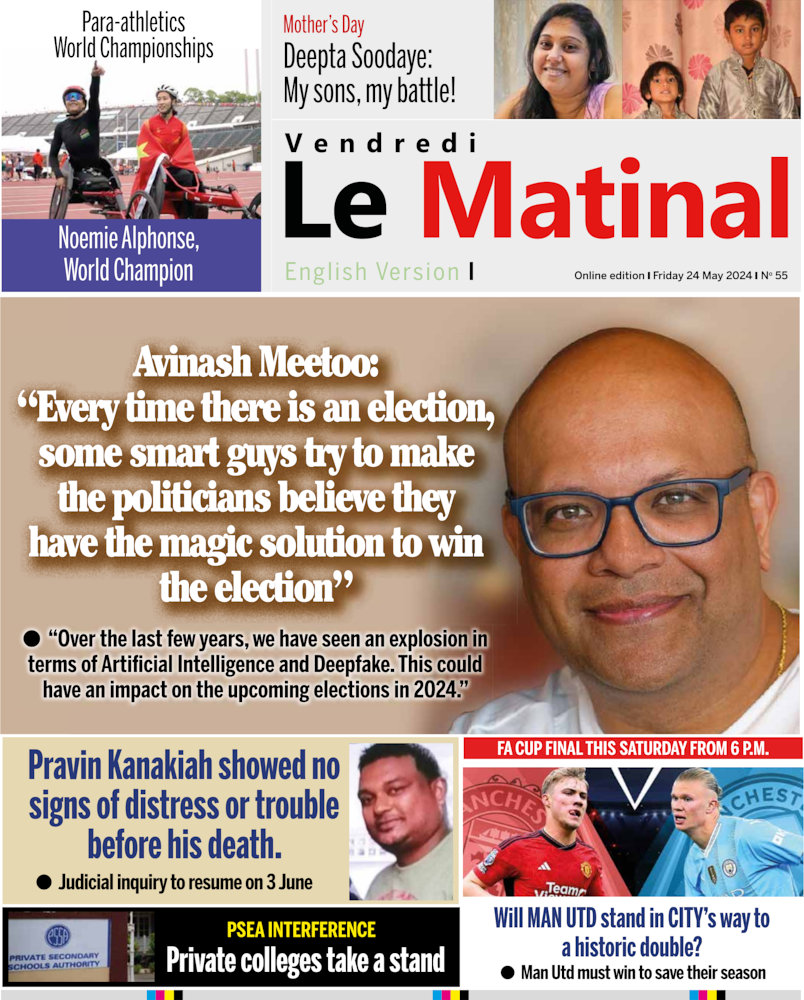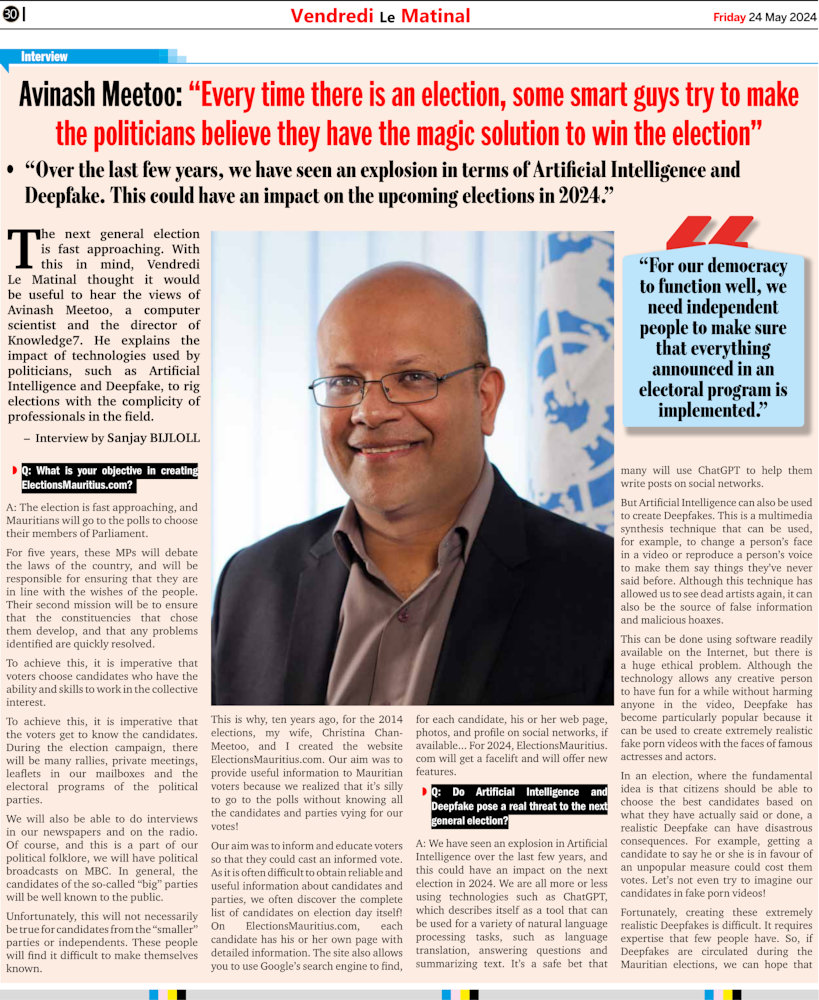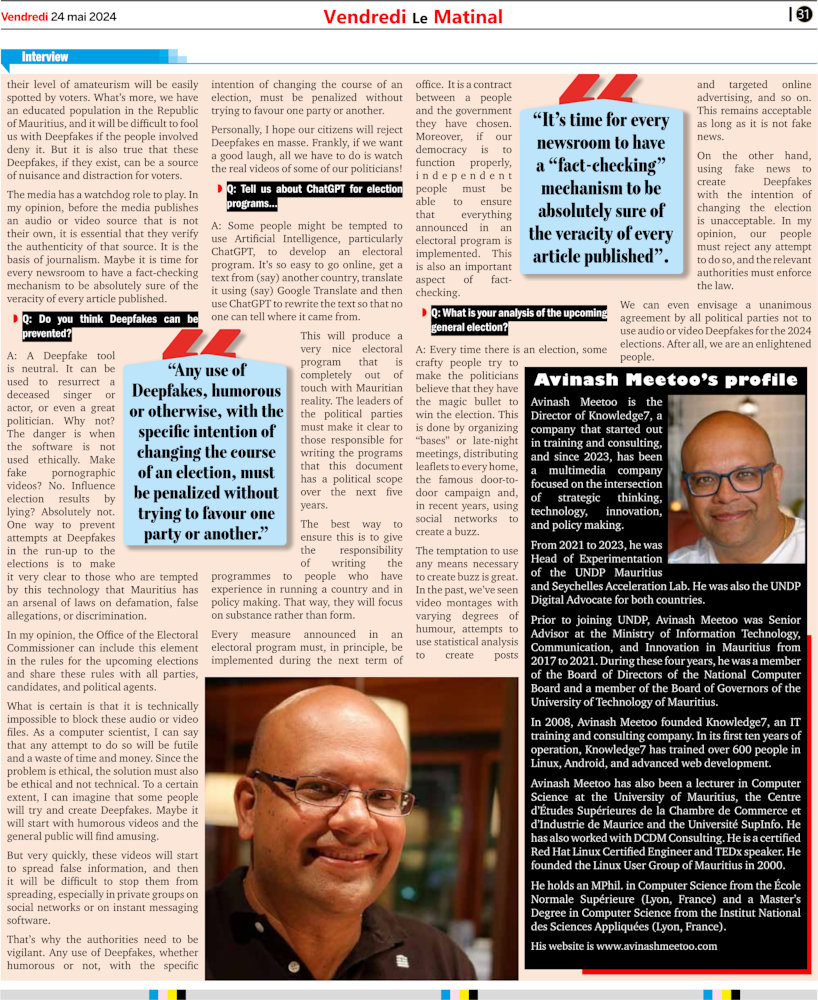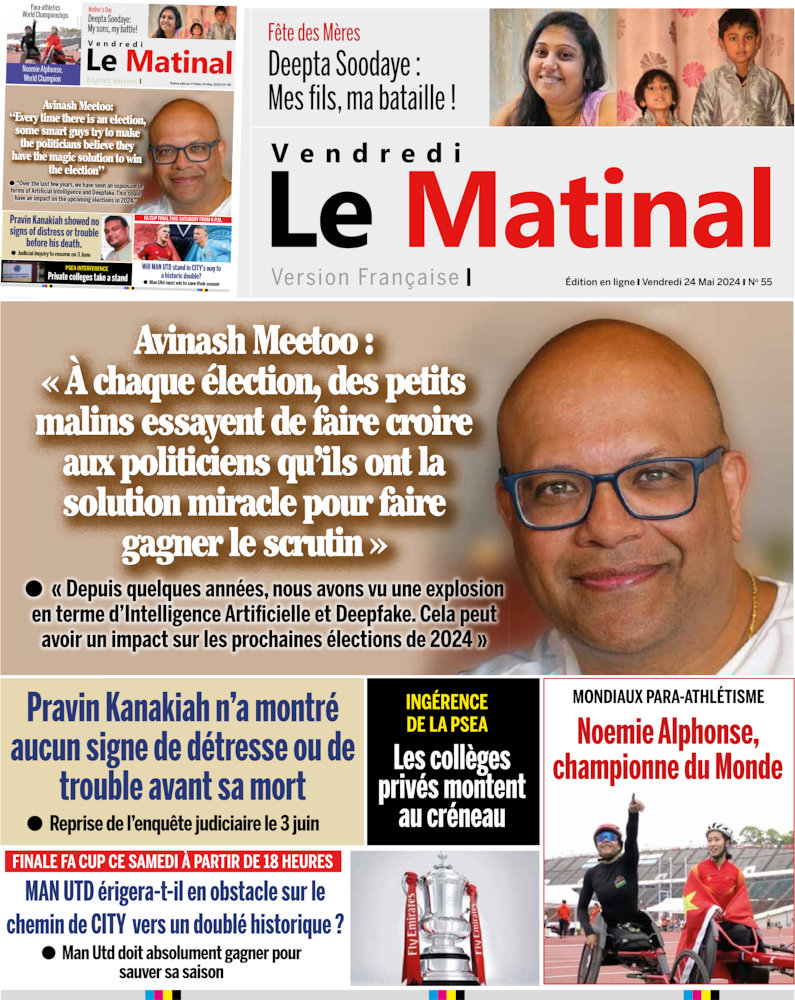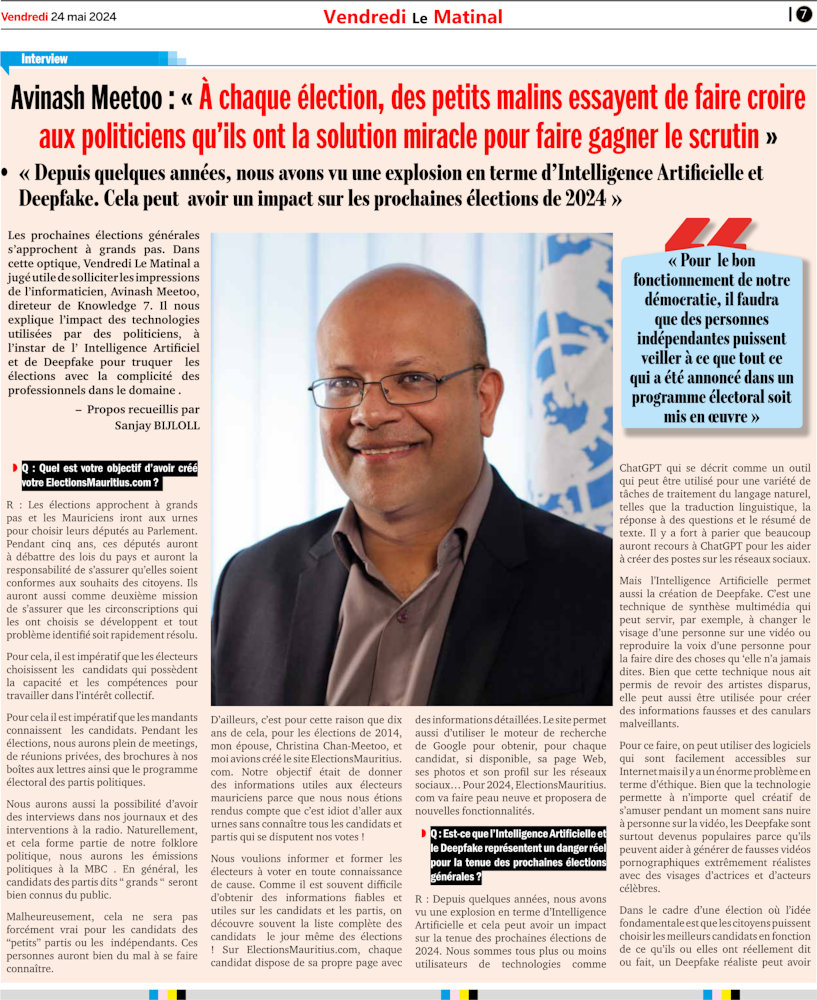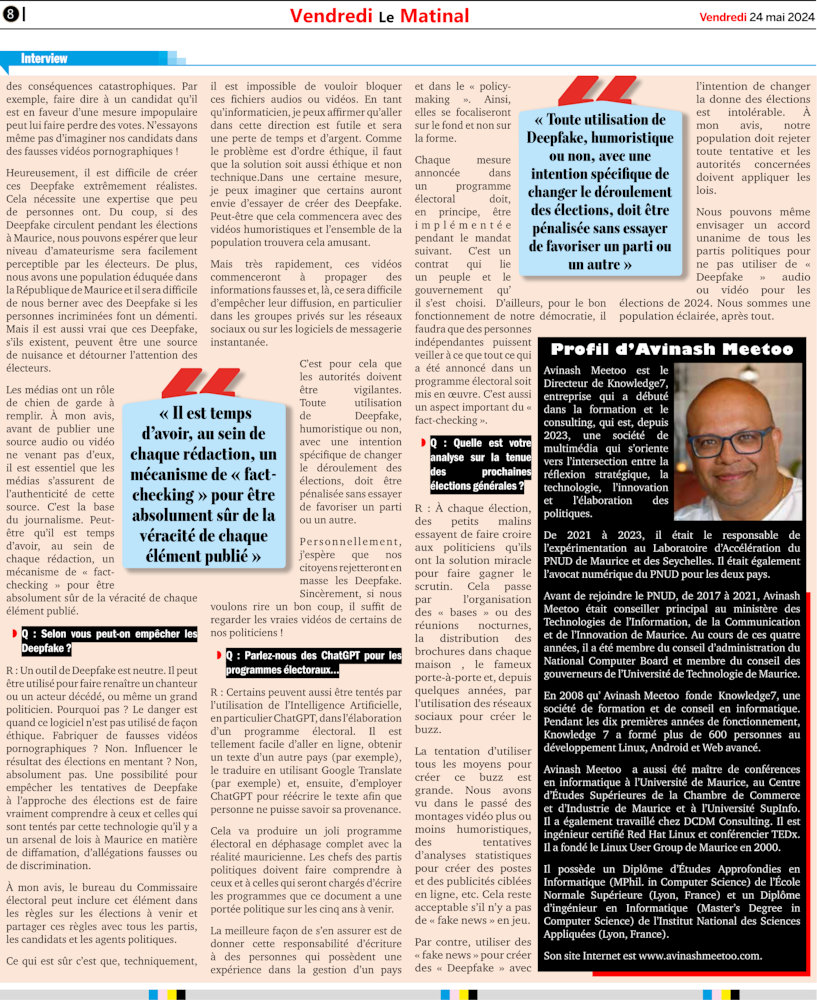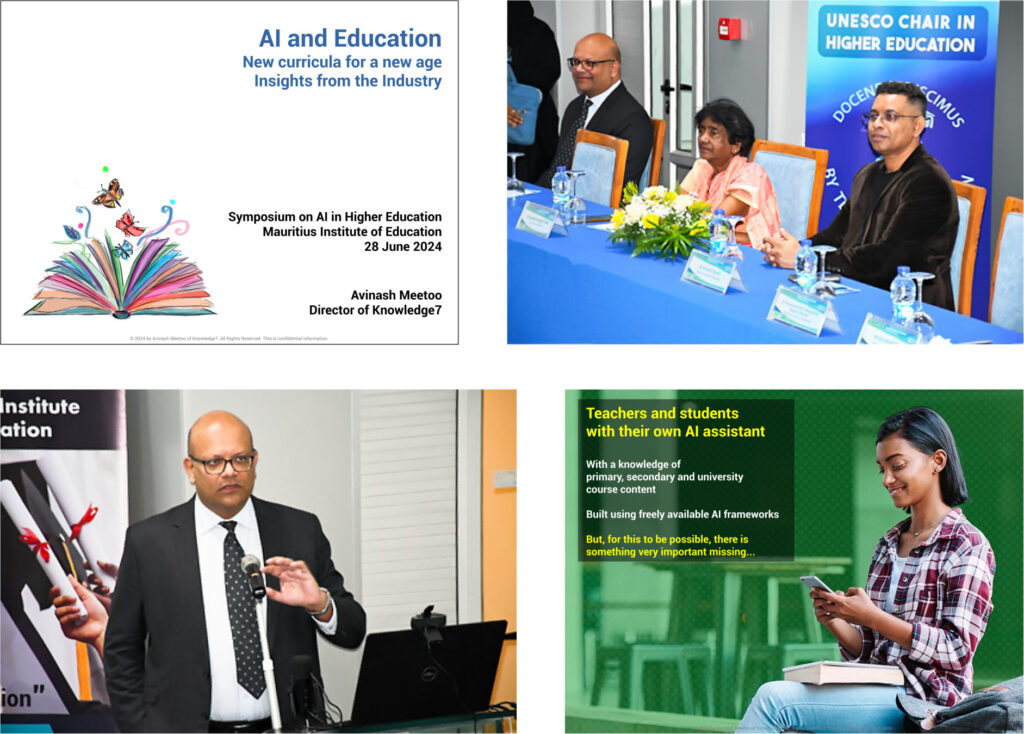
On Friday 28 June 2024, I made a presentation during a symposium on “Artificial Intelligence in Higher Education: Prospects, Policies and Possibilities” organised by the Mauritius Institute of Education with participants from St Mary’s University in London and the University of Eswatini, in the context of the launch of MIE’s UNESCO Chair in Higher Education.
I focussed on what Artificial Intelligence really is (and is not) and, explained that in the process of coming up with a strategic plan for AI in Higher Education, one should make it coherent with the existing Mauritius Artificial Intelligence Strategy, written six years ago by a group of professionals (of which I was part) with a very specific intent in mind: create a smarter Mauritius.
The gist of my speech was on the fact that Higher Education has a key role to play in order for Mauritius to achieve Vision 2030 and for the country to become high-income, inclusive and green. One way to do that, which was well received by the audience of MIE senior management and staff, is to build an AI assistant for all teachers and students based on the formidable amount of content and knowledge MIE had collected over the years. I also argued that MIE could be one of the main coordinators in a much-needed inter-institution working group on AI in Education. Mauritius needs more first-rate professionals and education is key!
I would like to say a big thank you to the organisers and the audience. Special thanks to Dr Jayantee Naugah, Dr Hemant Bessoondyal, Dr Hyleen Mariaye, Dr Waaiza Udhin and Dr Avinash Oojorah. I really enjoyed making this presentation and I hope it will inspire some people.

